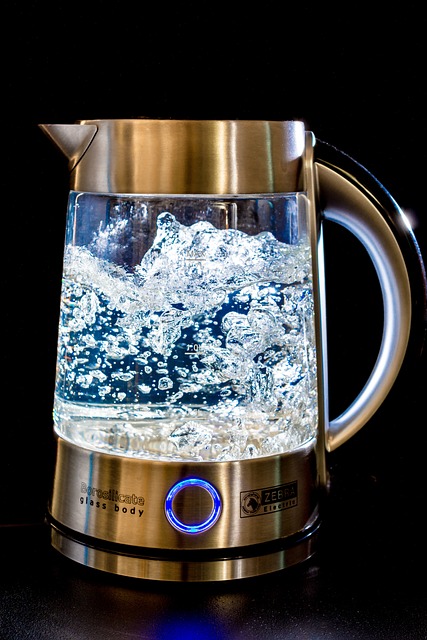Before replacing your water heater, assess household size, hot water usage patterns, and temperature preferences. Look for signs like temperature fluctuations, low water pressure, rust buildup, unusual noises, frequent repairs, or high energy bills—all indicating the need for an upgrade to a more efficient model capable of meeting your family's demands. Consider factors like family size and home size when deciding on a new heater, ensuring it has sufficient capacity to handle peak hot water usage without compromising performance or comfort.
Are you tired of inconsistent hot water or dealing with a clunky, old heater? Signs You Need a New Water Heater are more obvious than you think. This guide will help you navigate replacing your water heater with confidence. First, assess your water heating needs based on usage patterns and household size. Then, identify when it’s time for an upgrade by recognizing common issues and energy inefficiencies. We’ll break down the types of heaters available, their pros/cons, fuel options, and essential installation tips to ensure a smooth transition to your new water heater.
- Assessing Your Water Heating Needs
- – Understanding your hot water usage patterns
- – Factors influencing water heater capacity (family size, home size, etc.)
Assessing Your Water Heating Needs

Before purchasing a new water heater, it’s crucial to assess your specific water heating needs. This involves understanding factors like your household size, daily hot water usage, and the average temperature preference for your home. A larger family or those who frequently take long showers will require a more powerful and larger-capacity unit compared to a smaller household with lower hot water demands.
Pay attention to any signs that indicate you might need a new water heater. For instance, if your current heater is old and inefficient, causing frequent temperature fluctuations in your water, or if you notice significant drops in water pressure, it could be time for an upgrade. Additionally, persistent rust buildup, strange noises coming from the heater, or frequent repairs can be red flags that your water heater is nearing the end of its lifespan and should be replaced for better energy efficiency and performance.
– Understanding your hot water usage patterns

Understanding your hot water usage patterns is crucial when considering whether it’s time to replace your water heater. Look for signs that indicate increased demand, such as consistently running out of hot water, especially during peak usage times like morning showers or evening baths. If you find yourself frequently turning up the thermostat to get the desired temperature, this could be a red flag—it suggests your current system is struggling to keep up with your family’s needs.
Pay attention to any unusual noises coming from your water heater, as these can point to potential problems. Additionally, if your energy bills have been steadily rising without any changes in usage, it might be time for an upgrade. Older models are often less efficient, leading to higher heating costs. By analyzing your hot water usage patterns and keeping an eye out for these signs, you’ll be better equipped to decide when—and if—it’s time to invest in a new water heater.
– Factors influencing water heater capacity (family size, home size, etc.)

When considering replacing your water heater, several factors come into play, especially if you’re looking for the right capacity to suit your needs. The primary influences include family size and home size. A larger family will require a more substantial hot water supply, which translates to a higher capacity heater. Similarly, bigger homes with multiple bathrooms and appliances demanding hot water simultaneously need a more powerful unit.
For instance, if you’re a household of four using several gallons of hot water daily, a standard-sized water heater might suffice. However, Signs You Need a New Water Heater include frequent temperature fluctuations, inconsistent hot water supply, or excessive energy bills resulting from old, less efficient models. These scenarios suggest an upgrade to a larger capacity heater to ensure adequate hot water for all your needs.
When considering a new water heater, understanding your specific needs and identifying the signs you need a replacement are crucial steps. By assessing your hot water usage patterns and family size, you can determine the appropriate capacity. Keep an eye on any red flags like inconsistent hot water supply or excessive energy bills, as these may indicate it’s time for an upgrade. With the right information, you’ll be equipped to make an informed decision and choose a water heater that suits your lifestyle.
